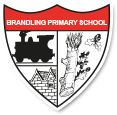Phonics
Read Write Inc.
At Brandling Primary school we follow the Read Write Inc scheme of work in EYFS and Year 1.
Read Write Inc (RWI) is a phonics complete literacy programme which helps all children learn to read fluently and at speed so they can focus on developing their skills in comprehension, vocabulary and spelling. The programme is designed for children aged 4-7. However, at Brandling Primary we begin the programme in Nursery and will continue teaching RWI to children beyond the age of 7 if they still need support in their reading.
RWI was developed by Ruth Miskin and more information on this can be found at http://www.ruthmiskin.com/en/parents/
Intent
Ensure children are more engaged during phonics sessions through speedy delivery of the RWI programme.
Children to read fluently and at speed focus on developing comprehension, vocabulary and spelling.
All reading books progress cumulatively, matched to the sound’s children are learning and already know. The teaching of phonics is of high priority.
Implementation
The systematic teaching of phonics has a high priority throughout the Early Years Foundation Stage (EYFS) and Key Stage 1. Phonics is taught daily to all children in EYFS, Year 1 and those in Year 2 who have not passed the phonics screening in Year 1 or completed the Read, Write, Inc (RWI) phonics programme.
In EYFS children take part in daily synthetic phonics sessions, which follow the Read Write Inc. scheme. Children are encouraged to transfer the skills they learn in phonics sessions into their independent reading and writing in the continuous provision.
Children are grouped, according to their progress in reading rather than their writing. This is because it is known that children’s progress in writing will lag behind progress in reading, especially for those whose motor skills are less well developed. Staff ensure that children read books that are closely matched to their increasing knowledge of phonics and the ‘red words’. This is so that, early on, they experience success and gain confidence that they are readers. Alongside this, the teachers read a wide range of stories, poetry and non-fiction to children: they are soon able to read these texts for themselves. Adults read stories to the children every day where a love of reading is promoted. For those children who are not making the expected level of progress in phonics and reading will have 1:1 or small group interventions.
Impact
Through the teaching of systematic phonics, our aim is for children to become fluent readers by the end of Key Stage 1. The children read books in line with their phonics knowledge. Children can then focus on developing fluency and comprehension throughout the school. Embedding the alphabetic code early on means that children quickly learn to write simple words and sentences. Attainment in phonics is measured by the phonics screen Test at the end of Year 1 and ongoing assessment throughout the Read, Write, Inc programme.



